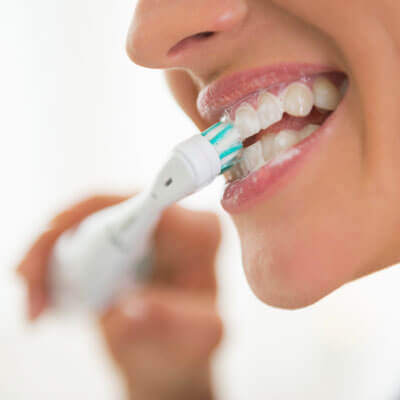Oral Hygiene in Penrith
Why is Oral Hygiene So Important?
 Maintaining good oral hygiene is crucial for healthy gums and teeth. To keep your gums healthy, you need to remove the daily build-up of plaque from all surfaces of your teeth by:
Maintaining good oral hygiene is crucial for healthy gums and teeth. To keep your gums healthy, you need to remove the daily build-up of plaque from all surfaces of your teeth by:
- Brushing your teeth twice a day, for two minutes each time. Ask your dentist which type of toothbrush is best for you, as many of us use brushes that are too hard or too large.
- Flossing your teeth, as a toothbrush doesn’t always reach into the gaps between the teeth or below the gum line.
- Avoiding brushing too hard, as this can damage your gums. Ask your dentist or hygienist to show you the correct technique.
- Using fluoride toothpaste.
Healthy gums are:
- Pink in colour
- Free from areas of redness or inflammation
- Not bleeding when brushing or flossing
- Not tender or causing discomfort
What is Gingivitis?
If the daily build-up of plaque is not removed, it can lead to the first stage of gum disease, ‘Gingivitis’. Gingivitis is caused by sticky bacteria known as ‘plaque’. Plaque collects in the small gaps between the gums and teeth, and if not removed by regular brushing & flossing, it will multiply by feeding on sugars found in your food and drink. Symptoms of gingivitis include:
- Bleeding when brushing or flossing
- Soreness or discomfort
- Red, puffy, or swollen gums
What is Periodontal Disease?
Periodontal Disease is the later stage of gum disease when the bacterial infection under the gums progresses deeper and affects the bone and tissue supporting the tooth. Symptoms of periodontal disease include:
- Bleeding when brushing or flossing
- Red, swollen, and tender gums
- Bad breath
- Gum pulling away from the tooth, causing ‘pocketing’
- Pus may be seen in the pockets around the tooth

The infection damages the tissue connecting the gum to the roots of the tooth. Once the tissue has been destroyed, the gum pulls away from the tooth, forming a pocket where bacteria thrive. If not treated, the bone anchoring the teeth in the jaw will dissolve over time, making the teeth loose and eventually causing them to fall out.
Periodontal disease is irreversible, but you can slow down its progression by regular visits to the dentist and dental hygienist, as well as improving your oral hygiene at home.
Get in Touch
To maintain optimal oral health and prevent gum disease, schedule an oral hygiene check-up with our experienced dental team at Smith Street Dental in Penrith today.

